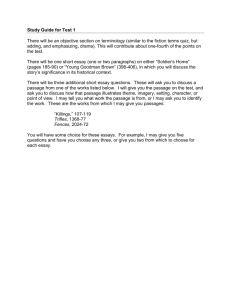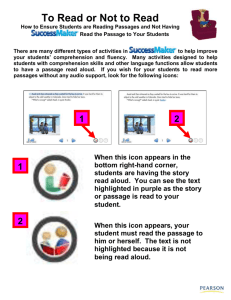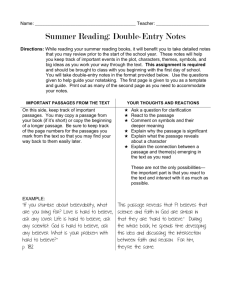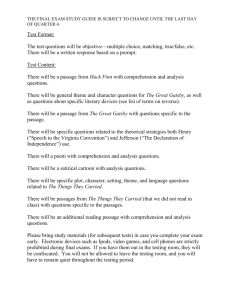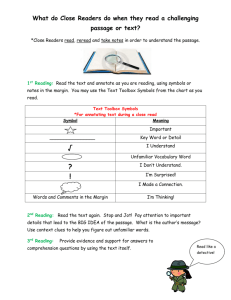General Tips for Becoming a Successful College Reader
advertisement
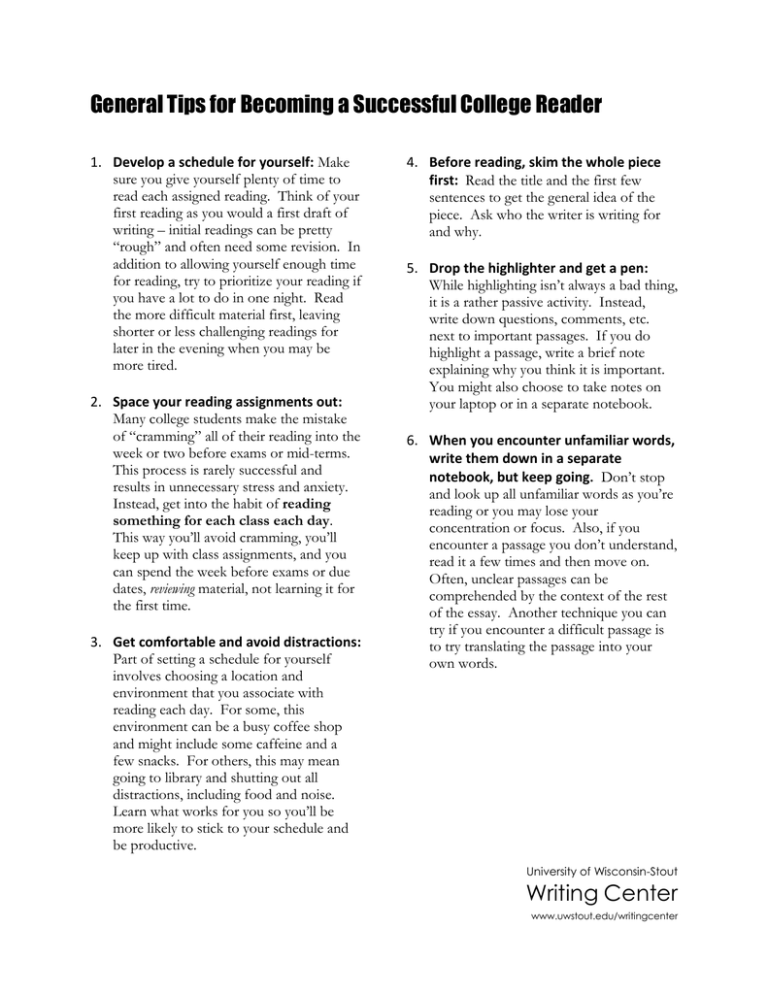
General Tips for Becoming a Successful College Reader 1. Develop a schedule for yourself: Make sure you give yourself plenty of time to read each assigned reading. Think of your first reading as you would a first draft of writing – initial readings can be pretty “rough” and often need some revision. In addition to allowing yourself enough time for reading, try to prioritize your reading if you have a lot to do in one night. Read the more difficult material first, leaving shorter or less challenging readings for later in the evening when you may be more tired. 2. Space your reading assignments out: Many college students make the mistake of “cramming” all of their reading into the week or two before exams or mid-terms. This process is rarely successful and results in unnecessary stress and anxiety. Instead, get into the habit of reading something for each class each day. This way you’ll avoid cramming, you’ll keep up with class assignments, and you can spend the week before exams or due dates, reviewing material, not learning it for the first time. 3. Get comfortable and avoid distractions: Part of setting a schedule for yourself involves choosing a location and environment that you associate with reading each day. For some, this environment can be a busy coffee shop and might include some caffeine and a few snacks. For others, this may mean going to library and shutting out all distractions, including food and noise. Learn what works for you so you’ll be more likely to stick to your schedule and be productive. 4. Before reading, skim the whole piece first: Read the title and the first few sentences to get the general idea of the piece. Ask who the writer is writing for and why. 5. Drop the highlighter and get a pen: While highlighting isn’t always a bad thing, it is a rather passive activity. Instead, write down questions, comments, etc. next to important passages. If you do highlight a passage, write a brief note explaining why you think it is important. You might also choose to take notes on your laptop or in a separate notebook. 6. When you encounter unfamiliar words, write them down in a separate notebook, but keep going. Don’t stop and look up all unfamiliar words as you’re reading or you may lose your concentration or focus. Also, if you encounter a passage you don’t understand, read it a few times and then move on. Often, unclear passages can be comprehended by the context of the rest of the essay. Another technique you can try if you encounter a difficult passage is to try translating the passage into your own words. University of Wisconsin-Stout Writing Center www.uwstout.edu/writingcenter

